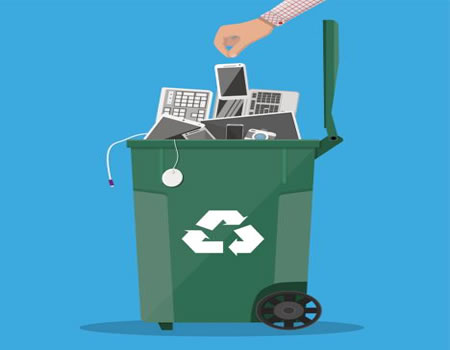The solid waste management in Oyo State deserves new method and operations to make it effective. The Integrated Community-based solutions is a method whereby a community takes full responsibility and there is political will to carry out solid waste operation and management in a beneficial manner.
The community is the focus of this initiative, which is meant for a group of beneficiaries that lives in the same area and has access to the same initiative. The emphasis of this initiative is on the premise of the deficiency of the previous attempts to manage urban waste which has not yielded much result because of our mindset, conservative nature and inflexibility to new ideas.
Our peculiar situation is caused by unplanned city, weak government policies and phenomenon of urban poverty. Another reason for the relatively low success of previous arrangements is the gap mentality between the rulers and the people; policies are simply announced without adequate information and inputs by the people. Integrated Community Based Solutions is a bottom to top approach which makes the community to assume ownership of their wastes and its management, with government only playing supervisory roles.
The state, through the ministries of Environment, Local Government and Information, are expected to synergise with local governments to develop solid wastes master plan while the local governments, through their councilors, in conjunction with traditional rulers and opinion leaders, fragment their localities into manageable communities, with inputs from the private sectors, NGO, women and youths on effective waste management.
Under this arrangement, activities are carried out by smaller units within the community. This unit will be responsible for the operational performance and financial services. The units takes decisions on what to do and how to do it, regarding objectives, daily work flow, personnel and financial accountability.
The units, through a private investor appointed by the community or their own cooperative associations, set up collection centres through which individuals and households deposit their sorted out garbage. The role of the private investor or cooperative organisation is to collect, sort, and transport such solid wastes to the producer who adds value and returns the new product to the market. The benefits of this symbiotic relationship provide general acceptance which is likely to drive the project without the use of force.
The initiative should be made open to individuals, market men and women or organisations who want the collectors to pick up their wastes, while the cooperative pays the collectors for service rendered. Working on the assumption that Oyo State has a population of six million people and that 80 per cent are captured, there would be four million patrons, upon the assumption that each generates 5kg solid waste per day, 2000 tonnes of waste would be generated per day.
Over 60 per cent of this waste will be effectively converted into energy and organic fertilisers. The energy there from reduces pressure on the national grid, and protects the climate, while the organic fertilizers boost food production, reduces hunger and poverty among the poorest. The non organic waste goes through some value additions which will create income, employment and industrialized the state.
I am convinced that if the Integrated Community Based Solutions is adopted in waste management in Oyo State, government would not only generate revenue but will have the benefit of re-appropriating the limited scare resources hitherto spent on garbage collections, curative healthcare services emanating from solid waste related problems, flooding and man-hours lost in compulsory sanitation programmes to other areas of development.
Fashona Esther Folake Ph.D.
Ibadan.
WATCH TOP VIDEOS FROM NIGERIAN TRIBUNE TV
- Let’s Talk About SELF-AWARENESS
- Is Your Confidence Mistaken for Pride? Let’s talk about it
- Is Etiquette About Perfection…Or Just Not Being Rude?
- Top Psychologist Reveal 3 Signs You’re Struggling With Imposter Syndrome
- Do You Pick Up Work-Related Calls at Midnight or Never? Let’s Talk About Boundaries







